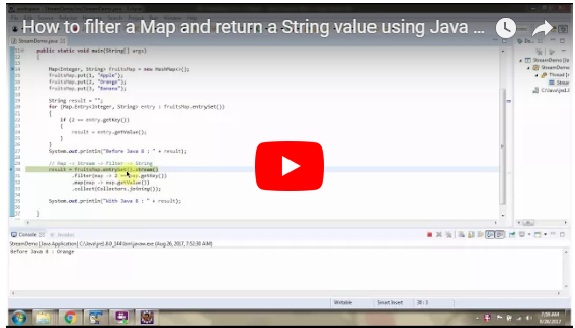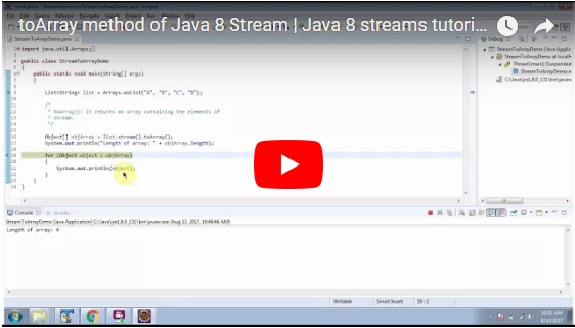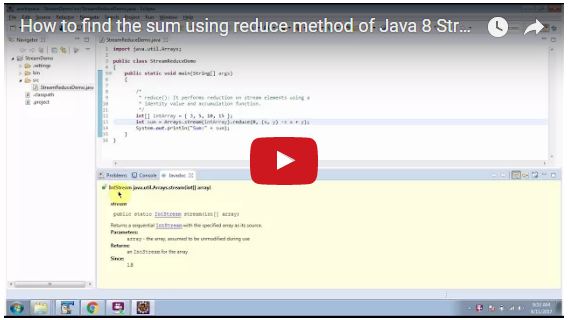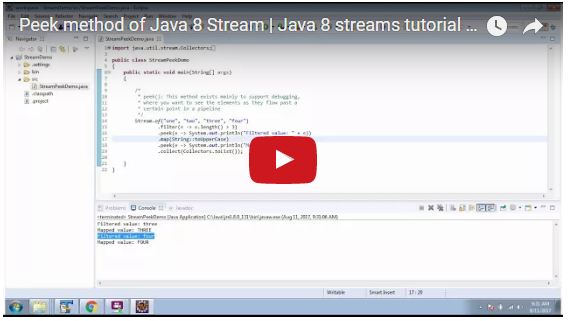Click here to watch in Youtube :
https://www.youtube.com/watch?v=y4dlPsXk3AQ&list=UUhwKlOVR041tngjerWxVccw
StreamDemo.java
https://sites.google.com/site/ramj2eev1/home/javabasics/StreamDemo_filter_fruits_map_return_map.zip?attredirects=0&d=1
Github Link:
https://github.com/ramram43210/Java/tree/master/BasicJava/StreamDemo_filter_fruits_map_return_map
Bitbucket Link:
https://bitbucket.org/ramram43210/java/src/53e39342c1c41555c6e548783b3cf96ab7bd9ee6/BasicJava/StreamDemo_filter_fruits_map_return_map/?at=master
See also:
All JavaEE Viedos Playlist
All JavaEE Viedos
All JAVA EE Links
Servlets Tutorial
All Design Patterns Links
JDBC Tutorial
Java Collection Framework Tutorial
JAVA Tutorial
Kids Tutorial
https://www.youtube.com/watch?v=y4dlPsXk3AQ&list=UUhwKlOVR041tngjerWxVccw
StreamDemo.java
import java.util.HashMap; import java.util.Map; import java.util.stream.Collectors; /** * * Example to filter a Map and return a map. */ public class StreamDemo { public static void main(String[] args) { Map<Integer, String> fruitsMap = new HashMap<>(); fruitsMap.put(1, "Apple"); fruitsMap.put(2, "Orange"); fruitsMap.put(3, "Banana"); //Map -> Stream -> Filter -> Map Map<Integer, String> filteredMap = fruitsMap.entrySet().stream() .filter(map -> map.getKey() == 2) .collect(Collectors.toMap(p -> p.getKey(), p -> p.getValue())); System.out.println(filteredMap); } }Output
{2=Orange}
Click the below link to download the code:https://sites.google.com/site/ramj2eev1/home/javabasics/StreamDemo_filter_fruits_map_return_map.zip?attredirects=0&d=1
Github Link:
https://github.com/ramram43210/Java/tree/master/BasicJava/StreamDemo_filter_fruits_map_return_map
Bitbucket Link:
https://bitbucket.org/ramram43210/java/src/53e39342c1c41555c6e548783b3cf96ab7bd9ee6/BasicJava/StreamDemo_filter_fruits_map_return_map/?at=master
See also:















